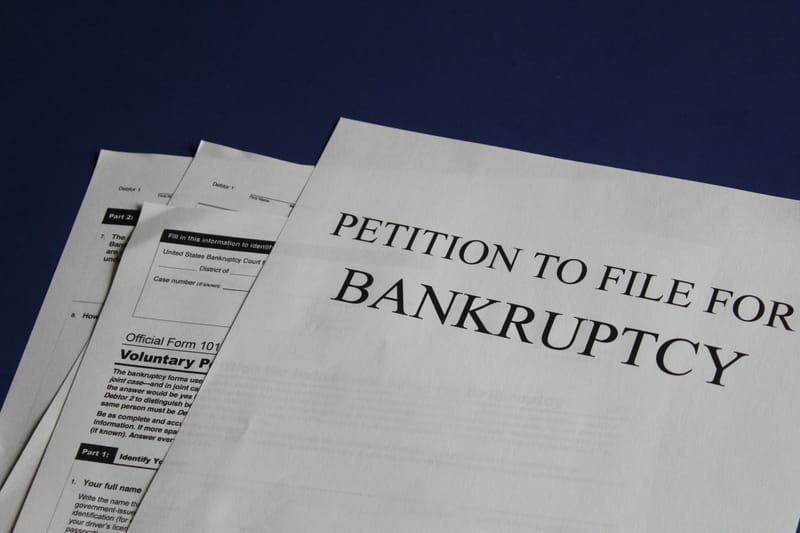Legal Blog - Louwrens Koen Attorneys
Protect Your Children's Inheritances from the Guardian's Fund - Learn how to safeguard your loved ones' financial future with a professionally drawn will. Find out how to prevent your children's inheritances from ending up in the Guardian's Fund. Get expert advice and guidance to ensure your family's security.
Read MoreUnderstanding Memorandum of Incorporation (MOI) and Shareholders Agreement (SHA) in South African Company Law. Learn about their roles, differences, and the legal implications under the Companies Act. Discover the relevance of SHA's in governing private companies and drafting considerations for effective agreements. Get insights into the hierarchical order, conflicts, and the significance of maintaining privacy and confidentiality. Stay informed on how these legal documents safeguard shareholders' rights and responsibilities within the company.
Read MoreUnderstanding the intricacies of contract interpretation in South Africa can be a formidable task for the legal system. The courts face the delicate balance of considering legislation, public policy, and constitutional rights while developing the law. One crucial aspect that has recently undergone scrutiny is the application of the parol evidence rule. The parol evidence rule, a fundamental principle in common law, restricts the admission of extrinsic evidence during legal proceedings. This evidence aims to contradict, add to, or modify the contents of a written contract. Its purpose is to safeguard the integrity of written agreements and prevent potential ambiguities. Interpreting contracts requires a careful examination of the parties' intentions and the contract's context. Striking the right balance between adhering to the contract's terms and considering surrounding circumstances can be challenging. Recent cases have shed light on the complexities of contract interpretation in South Africa. In the case of Natal Joint Municipal Pension Fund v Endumeni Municipality, the court emphasized the significance of analyzing surrounding circumstances and the contract's background. The goal is to arrive at sensible and businesslike decisions while interpreting the contract. However, specific guidance on what extrinsic evidence would be deemed inadmissible was not provided, leaving room for further exploration.
Read MoreThe Department of International Relations and Cooperation (DIRCO) is a South African government department responsible for the country’s foreign policy and diplomatic relations with other nations and international organisations. Established in 1994, DIRCO's mission is to promote and protect South Africa's national interests, advance its foreign policy objectives and contribute to a peaceful and prosperous world.
Read MoreInsolvency is a serious matter that can have significant consequences for individuals and businesses alike. At times, insolvency consultation or online evaluation with an attorney may be necessary to help navigate the complex legal and financial issues involved.
Read MoreTo prove a claim against an insolvent estate, the claim must be a liquidated claim that arose before the date of sequestration and existed at that date, and did not prescribe at that date. A liquidated claim is a claim for a certain amount that has been determined through an agreement, a court judgment, or other means. Non-liquidated claims may be tendered at a meeting of creditors and deemed proved against the estate if the trustee has compromised or admitted them, or if they have been settled by a court judgment.
Read MoreRehabilitation marks the end of sequestration for an insolvent individual and releases them from all disabilities arising from the sequestration. It also discharges all debts owed by the insolvent that were due or had arisen before the sequestration. Rehabilitation is possible if specific requirements are met.
Read MoreSequestration is the act of voluntarily surrendering your financial affairs to the Master of the High Court in accordance with the Insolvency Act 24 of 1936. This process involves an attorney and advocate working on behalf of the debtor to apply for sequestration in the High Court of South Africa. It is usually a last resort for those facing insurmountable debt due to circumstances beyond their control. If granted, the debtor (the applicant) can have up to 80% of their debt written off, providing much-needed relief.
Read MoreThis article discusses the meaning of voluntary liquidation and its implications for businesses. Voluntary liquidation is a legal process that involves formally closing a business and distributing its assets to creditors or shareholders. The process entails several steps, such as document preparation, liquidator appointment, meetings with creditors and shareholders, claim verification, asset realization, and proceeds distribution to creditors. When a company is insolvent, meaning it cannot pay its debts, liquidation may be the only viable option.
Read MoreTrusts generally have a wide application and can be customised to meet specific needs. Reasons to establish a trust include: Providing for minor beneficiaries financially and otherwise Honoring maintenance commitments in divorce orders and settlements Providing for disabled dependents or aged parents Protecting and preserving assets for the next generation Serving as a holding vehicle for assets as part of estate planning structuring Providing a regular income for favorite charities (public benefit organizations) Providing for the dependents of a deceased employee
Read MoreThe introduction of the Special Trust by SARS has brought about more favorable tax treatment for certain trusts. Unlike traditional trusts that are taxed at a flat rate, Special Trusts are taxed on the same sliding scale as natural persons. SARS recognizes two types of Special Trusts for tax purposes: Special Trust Type A: This trust is created solely for the benefit of a person or persons with a mental or physical disability, as defined in Section 6B(1) of the Income Tax Act. The disability makes it impossible for the beneficiary/beneficiaries to earn enough money to care for themselves or manage their finances. If there is more than one qualifying beneficiary, they must be related to each other. These trusts can be created either through a will or during the creator's lifetime, and sometimes as a result of a court order in favor of a specific natural person with a disability to assist in the management of their affairs.
Read MoreAccording to SARS, a vested trust (also known as a bewind trust) is a type of trust where the founder transfers ownership of assets to the beneficiaries of the trust, while the trustees are responsible for administering and controlling those assets. In this type of trust, the beneficiaries are considered the owners of the trust assets.
Read More






